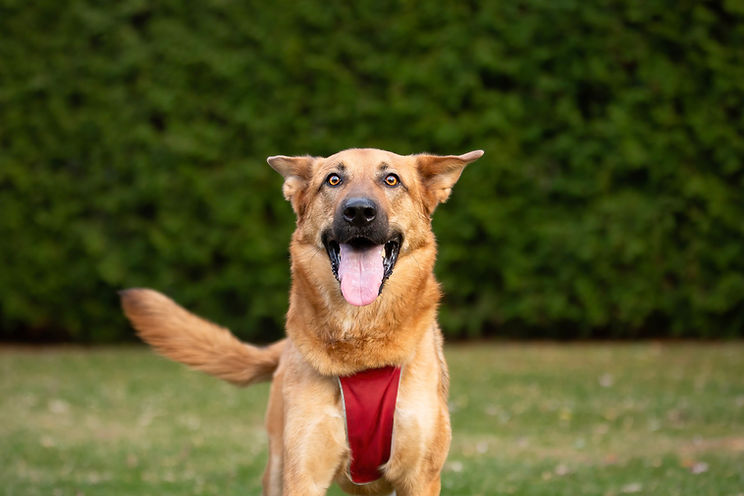Understanding the Duty of a Veterinary Behaviourist in Animal Training and Well-being
The duty of a veterinary behaviourist is necessary in addressing the intricate relationship between animals and their owners. They incorporate veterinary medication with understandings from animal habits scientific research to take on issues like aggressiveness and anxiousness. Unlike typical instructors, their technique concentrates on the underlying sources of these habits. This nuanced point of view questions concerning the performance of conventional training techniques and just how a deeper understanding can change pet wellness. What methods do they use to accomplish these outcomes?
What Is a Veterinary Behaviourist?
A veterinary behaviourist is a specific professional who concentrates on understanding and dealing with the behavior issues of pets, specifically pet dogs. Their experience incorporates vet medication and pet habits scientific research, allowing them to detect and treat a variety of behavior problems - cat behaviourist near me. These specialists often hold advanced levels, such as a Master's or PhD in pet behavior, and are accredited by pertinent companies, ensuring they possess a deep understanding of pet psychology
Vet behaviourists assess animals with thorough observation and analysis, taking into consideration elements such as genetics, atmosphere, and training history. They establish customized therapy plans, which might include desensitization strategies, favorable reinforcement techniques, and ecological adjustments. Cooperation with animal owners is crucial, as they offer guidance and assistance throughout the training procedure. Eventually, the goal of a veterinary behaviourist is to improve the wellness of the animal while promoting a harmonious connection between family pets and their proprietors.
The Relevance of Understanding Pet Habits
Comprehending pet habits is essential for both pet proprietors and experts in the area of animal care, as it lays the foundation for reliable communication and training. Identifying exactly how animals perceive their environment and react to stimulations enables caretakers to create an extra unified living circumstance. Insight right into behavioral signs, such as body movement and vocalizations, fosters more powerful bonds in between animals and their owners. By appreciating the all-natural impulses and demands of various varieties, individuals can customize their training approaches to suit these aspects, promoting better knowing and participation. In addition, a solid grasp of behavior science help in identifying stressors and potential triggers, permitting for positive treatments. Generally, comprehending animal habits not only improves the wellness of animals yet likewise enriches the experiences of those that care for them, inevitably bring about healthier, better relationships.
Typical Behavioral Issues Addressed by Veterinary Behaviourists
Vet behaviourists regularly address typical behavior issues in animals, consisting of aggressiveness and anxiety reactions. They additionally focus on anxiety and tension monitoring, which can significantly influence an animal's health. Understanding these concerns is vital for establishing efficient training and treatment strategies.
Hostility and Anxiety Responses
While several animal owners may see hostility and worry feedbacks as basic behavior issues, these complicated responses frequently stem from underlying anxiety or previous injury. Vet behaviourists play a crucial duty in identifying the root causes of these behaviors, which can show up in numerous kinds, consisting of growling, attacking, or too much worry of specific circumstances. Recognizing these triggers is essential for creating effective training techniques tailored to every animal's one-of-a-kind conditions. Behaviourists use methods such as desensitization and counter-conditioning to aid animals handle their anxieties and hostility. Additionally, they educate animal proprietors concerning suitable administration strategies, highlighting the significance of patience and consistency. Attending to aggression and anxiety actions not only boosts the animal's top quality of life yet likewise reinforces the bond in between pet and proprietor.
Anxiousness and Stress Administration
Anxiety and tension are widespread problems that numerous pets encounter, usually resulting from adjustments in their environment, absence of socialization, or previous negative experiences. Vet behaviourists play an important duty in determining the underlying reasons for these concerns. They employ different strategies, including behavioral modification, desensitization, and counter-conditioning, to assist animals take care of stress and anxiety. On top of that, they may advise environmental adjustments, such as producing safe rooms or supplying enrichment activities that promote leisure. Partnership with animal owners is crucial, as behaviourists assist them in comprehending their pet dog's signals and applying reliable coping strategies. By addressing stress and anxiety and stress and anxiety, veterinary behaviourists add significantly to boosting the general wellness and lifestyle for family pets and their households.
Just How Veterinary Behaviourists Differ From Traditional Trainers
Vet behaviourists vary from standard fitness instructors largely in their educational histories and training. While traditional fitness instructors often concentrate on obedience and basic commands, veterinary behaviourists emphasize understanding and attending to underlying behavior concerns, including clinical considerations into their approach. This unique focus allows them to offer a much more detailed treatment for check these guys out family pets with complex behavioral difficulties.
Education And Learning and Training Distinctions
Comprehending the difference in between vet behaviourists and standard instructors is important for animal owners seeking reliable training options. Vet behaviourists have postgraduate degrees in veterinary medicine, frequently complied with by specialized training in animal behaviour. This education equips them to address complicated behavioral problems that may stem from clinical problems or psychological factors. In comparison, typical instructors commonly have certifications from training programs that concentrate on obedience and standard commands without diving into the underlying emotional or medical elements. While both professionals aim to enhance pet behaviour, vet behaviourists can detect and deal with behavioural problems holistically, incorporating medical understanding into training strategies. This important distinction highlights the value of choosing the best specialist based upon the family pet's specific requirements.
Emphasis on Behavioral Issues
Addressing behavioural concerns requires a nuanced technique that identifies veterinary behaviourists from typical trainers. While conventional instructors often concentrate on obedience and fundamental commands, vet behaviourists explore much deeper into the underlying reasons for problematic behaviors. They utilize a considerable understanding of animal psychology and therapy methods, which are rooted in clinical research study. This know-how enables them to determine concerns coming from anxiousness, concern, or aggression, instead than just dealing with surface-level signs and symptoms. On top of that, veterinary behaviourists examine the pet dog's overall wellness, thinking about environmental variables and the animal's background. By incorporating clinical understanding with behavioural techniques, they offer customized solutions that advertise lasting behavioural change, making sure both the pet dog's and proprietor's quality of life are markedly enhanced.
Medical Considerations Consisted Of
While standard fitness instructors may forget underlying medical problems, vet behaviourists focus on a comprehensive evaluation of a family pet's health and wellness as a here are the findings foundational action in attending to behavioral issues. This technique permits them to determine possible clinical problems that may contribute to unwanted behaviors, such as anxiety, discomfort, or neurological problems. By incorporating clinical analyses right into their technique, vet behaviourists can work together with veterinarians to ensure an alternative understanding of the animal's health. Furthermore, they can advise appropriate therapies or changes to training plans based on medical searchings for. This extensive viewpoint identifies veterinary behaviourists from conventional trainers, as they attend to both behavioral and health-related aspects, inevitably leading to much more efficient and sustainable end results for pets and their proprietors.

The Process of Collaborating With a Vet Behaviourist
Collaborating with a vet behaviourist involves a systematic strategy to resolving a pet dog's behavioral problems. The process begins with a substantial evaluation, where the behaviourist collects thorough information regarding the pet dog's background, setting, and particular behaviors that are problematic. This normally includes questionnaires, interviews with the pet dog owner, and sometimes monitorings of the pet in its environment.
Complying with the assessment, the veterinary behaviourist develops a tailored intervention plan that might include behavioral adjustment strategies, training methods, and, if needed, recommendations for medical examinations. board certified veterinary behaviourist. The plan is created to be practical and attainable, guaranteeing that it fits seamlessly into the animal proprietor's way of life
Succeeding follow-up sessions are important to keep track of progress, readjust methods, and provide support. This collective initiative not only intends to customize useful site unwanted behaviors however also to improve the overall well-being of the animal, making certain an unified partnership between the animal and its proprietor.
Enhancing Your Pet's Lifestyle With Behavioral Support
Enhancing a family pet's high quality of life via behavior assistance is crucial for promoting a healthy and satisfying connection between family pets and their proprietors (board certified veterinary behaviourist). Veterinary behaviourists play a crucial role in identifying and resolving behavior issues that might hinder an animal's wellness. Through tailored methods, they help minimize anxiousness, anxiety, and hostility, inevitably advertising a more balanced and delighted family pet
Behavioral support includes different strategies, including positive reinforcement, ecological enrichment, and socializing. By implementing these methods, proprietors can develop a nurturing environment that urges favorable behaviors. This not just improves the animal's psychological wellness but additionally strengthens the bond between animal and owner.
Furthermore, regular assessments with a vet behaviourist assurance that any arising behavior worries are immediately attended to, avoiding acceleration. Overall, purchasing behavioral support is a proactive technique that significantly improves an animal's life, bring about boosted physical and mental health results.
Frequently Asked Concerns
What Credentials Do Vet Behaviourists Have?
Veterinary behaviourists normally hold a vet degree, followed by specialized training in pet actions. Lots of additionally have certifications from identified companies, demonstrating their expertise in attending to pet behavior issues and advertising total animal well-being.
Can Veterinary Behaviourists Recommend Medication for Pets?


Veterinary behaviourists, possessing vet degrees and specialized training, can without a doubt prescribe drug for family pets. This capacity allows them to attend to underlying behavior issues efficiently, frequently incorporating pharmacological treatment with behavioral adjustment strategies for ideal end results.
For How Long Does Behavior Modification Usually Take?
Behavior treatment duration varies significantly, commonly ranging from a few weeks to several months. Elements affecting this timeline consist of the pet dog's specific issues, uniformity of training, and the owner's interaction at the same time.
Are Remote Appointments Available With Vet Behaviourists?

Just how Much Does a Veterinary Behaviourist Appointment Price?
The cost of a veterinary behaviourist assessment normally varies from $100 to $300, depending upon variables such as place, experience, and session size. Extra fees might look for follow-up examinations or specialized services.